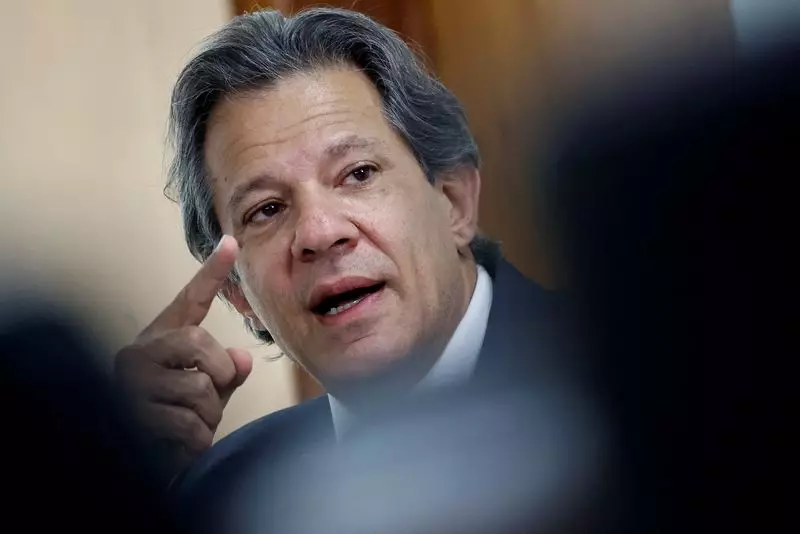Brazil is currently navigating a tricky economic landscape, fraught with investor anxiety and fiscal unpredictability. Recently, Finance Minister Fernando Haddad canceled a planned trip to Europe, a decision that underscores the mounting pressure on the Brazilian government to deliver on promised spending cuts. This cancellation not only highlights internal challenges but also emphasizes how fiscal policy—or the lack thereof—can directly affect market dynamics and international relations.
Haddad’s abrupt change in plans was motivated by requests from President Luiz Inácio Lula da Silva and the growing demand from market participants for clarity regarding the government’s fiscal strategies. Originally slated for a week-long visit starting November 4, 2023, the finance minister is now remaining in Brasília to focus on pressing domestic issues. This shift signifies an essential pivot towards direct governance as Brazilian officials strive to reassure the market of their commitment to responsible economic management.
The financial implications of this uncertainty were promptly illustrated by the U.S. dollar reaching its highest point against the Brazilian real since May 2020. Such movements in currency reflect a broader trepidation among investors about Brazil’s economic trajectory amid the upcoming U.S. presidential elections. The increased dollar strength indicates a decreasing confidence in Brazil’s fiscal plans, as stakeholders eagerly awaited detailed proposals that remain elusive.
Local media have reported indications that the government might delay the announcement of these much-anticipated spending cuts, which fosters a sense of instability and introduces risk into market transactions. Investors thrive on clarity and predictability, and the Brazilian government’s failure to provide concrete timelines exacerbates suspicion regarding its economic policies.
In an effort to restore confidence, the government had previously assured market participants that spending reduction measures would be forthcoming after the municipal elections. However, the lack of a definitive schedule creates a perception of indecision, which can severely impact Brazil’s international standing. The country’s fiscal health has long been a focal point, and the ability to manage debt sustainably is crucial for fostering long-term investment.
Haddad’s ministry has highlighted its commitment to tackling “domestic subjects,” though specifics regarding these issues remain shrouded in ambiguity. As a result, stakeholders are left in a position of waiting, which invariably affects their financial strategies. Many industry analysts are left wondering how this prolonged uncertainty will play out in the context of Brazil’s larger economic framework.
As Brazil confronts the challenges ahead, the vital task for its government will be to effectively engage with the market and provide the necessary transparency regarding its fiscal policies. Whether through revised spending measures or clear communication strategies, the effectiveness of Brazil’s economic management will soon face the ultimate test. In a global economy where confidence is key, the Brazilian government must not only reassure its citizens but also the international community that it is capable of navigating these economic waters. Only time will tell how this scenario unfolds and what it means for the future of Brazil’s financial landscape.

